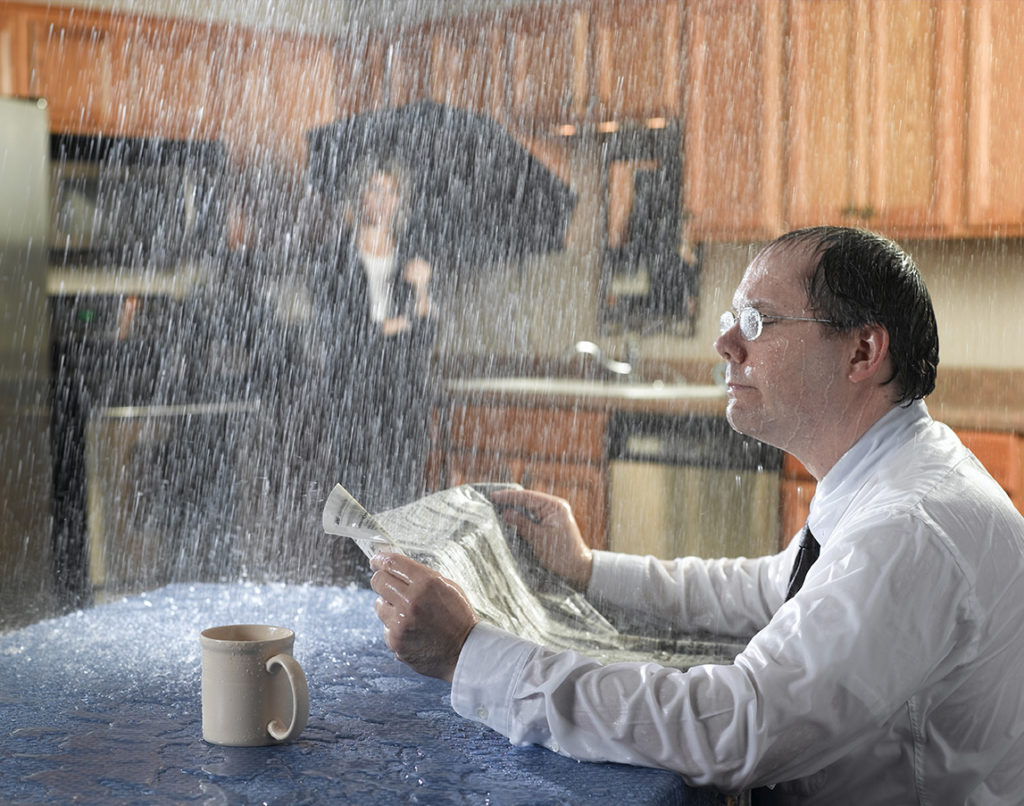
When summer comes and temperatures rise, air conditioning is a necessity for comfort and survival, especially here in Florida. These days, most homes have a central HVAC system. A centralized air conditioning system has two units: an evaporator coil located in your furnace, and a compressor unit located outside your home. It’s natural to worry that the compressor might be damaged by all the rain that would fall into it. However, because it is outside, it is specifically designed to resist weather conditions, with the exception of special circumstances like flooding or hurricanes.
Being outside all the time, the compressor unit of an air conditioner may seem like it can easily be damaged. However, like the rest of your house’s exterior, a compressor is specifically designed to resist damage from the weather. In fact, placing a tarp over it to prevent rain from entering may in fact damage your compressor, because the tarp will trap moisture in the compressor unit, increasing the humidity and causing rusting. A tarp would also decrease the performance of a compressor by blocking the airflow. The compressor is designed to use the air flowing through it to dry quickly, preventing rust and other damage.
Being designed to withstand rain, it’s perfectly safe to run your air conditioner while it’s raining. In fact, an air conditioner will dehumidify the air in your home, which easily increases to uncomfortable levels when it is raining during the hot summer. Dehumidifying your home will help make the air more comfortable. In addition, excess humidity can encourage mold growth. Thus, running your air conditioner during a summer shower is not only comfortable, but is in fact beneficial.
Humidity is an easily overlooked part of climate control in the home. For improved humidity control, ask your Mahle HVAC contractor about options for adding a dedicated humidity unit to your central HVAC system. With increased humidity control, you can more controllably regulate your home’s humidity. A lower humidity not only discourages mold growth, but also means that higher temperatures in your house will still feel comfortable. Good humidity control is especially important when it is raining because the humidity can quickly rise to uncomfortable levels which make you feel more hot, which in turn can cause you to try turning up the air conditioning to compensate. Being able to set the thermostat a few degrees higher by decreasing humidity will decrease your electricity usage, meaning that investing in a dehumidifier will not only save you money, but is good for the environment.
Of course, even though your air conditioner’s compressor unit will resist rain, flooding and hurricanes are exceptional circumstances that can still damage it, as it is not designed to withstand submersion in water. This is similar to how your house also resists rain but will be damaged by these natural disasters. In the event of a hurricane, turn off your HVAC at the circuit breaker to prevent electrical shock in case there is flooding. In addition, cover the outdoor compressor unit to prevent damage from debris. This is the only time that you should cover the compressor, since the potential for debris damage outweighs possible damage from humidity. Also strap down the unit to the ground if possible to prevent high winds from tearing it out.
Air conditioning is a necessity in Florida–in fact, the southern part of the state was virtually unpopulated before air conditioning, because it was so hot and humid in the summer that it was essentially uninhabitable. Thus, maintaining your air conditioning unit is an essential part of home upkeep as a responsible homeowner. Knowing when and how to protect and maintain the various parts of your HVAC system is a part of that, to keep your air conditioning maintained and functioning well.
Because your air conditioner’s compressor is specifically designed to deal with environmental aspects associated with being outside, it will not be harmed by rain, and in fact covering it with a tarp will damage it. A well functioning air conditioner that effectively cools your house improves not only comfort, but also happiness and productivity. A well cooled home is a happy home.